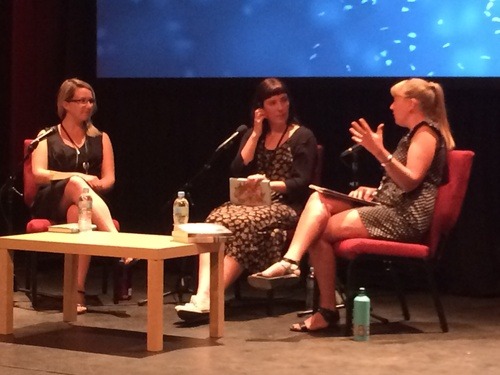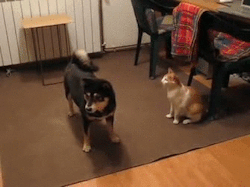Perth Writers Festival 2014 (Part 2)
Lionel Shriver & David Vann
My first session on Saturday was a really stimulating discussion between two expatriate American writers: Lionel Shriver and David Vann, chaired by Chip Rolley, also an ex-pat - which might say something about the US - I’ll leave it up to you to draw your conclusions! One of the things I love most about Perth Writers Festival is the myriad opportunities to bump into people you know, and this session was no exception. I sat between fellow local author and friend Dawn Barker, and Naama Amram, from my publishing team at Fremantle Press.
The discussion centred around ‘issues-based’ writing. Shriver said readers don’t turn to fiction 'to be edified about social and political issues’ and suggested that if that’s what you’re about as a writer, you’d better cover it up well. I myself am easily turned off novels which seem too didactic, an experience I had recently with Chimamanda Ngozi Adichie’s novel Americanah. Shriver argued that novels need a broader thematic panel than the political issues of the time, in order to retain relevance and appeal in the longterm.
She believes fiction is good for exploring different issues, darker corners and deeper matters than non-fiction, that it should enlighten in some way that non-fiction cannot…or at least be funny. (She certainly was funny, in a scathing, bone-dry sort of way). She said her books stem from the intersection of the public and the private and that having a personal experience sometimes gives her a sense of ownership of an issue. For example, when a friend of hers paid $2 million in medical expenses, only to die anyway, she wrote So Much for That, 'not from some dry political conviction, but from burning rage’.
She also elucidated the idea behind a phrase on the last page of her most recent novel Big Brother:
We are meant to be hungry,
She believes wanting something is more fun than getting it, an idea I found myself mulling over long after the session.
I didn’t connect quite so much with what David Vann said, perhaps because his work is unfamiliar to me, though one of his comments resonated with me very much:
An idea is the worst thing that can happen to a writer. it’s better not to know.
Hannah Kent & Evie Wyld
On Saturday afternoon I had the privilege of chairing a session with Hannah Kent and Evie Wyld, on the 'fallen women’ in their novels Burial Rites and All the Birds, Singing. I had read both their books very closely and it was a great pleasure to hear both authors speak so eloquently about the thinking that underpinned the books: their sources of inspiration, their research and their characters.
Here we are, in the green room before the session:

And here, chatting up a storm in the Dolphin Theatre:

Martin Amis
After recharging my batteries with an amazing dinner at Balthasar with my parents, we headed off to the Perth Concert Hall to see Martin Amis in conversation with Tony Jones. And what a brilliant conversation it was! Amis quoted poets and philosophers, told affectionate and often hilarious yarns about friends and family members, including his father and stepmother - also writers, and made comment on every aspect of contemporary British society from 'Lotto louts’ to the royal family. There were numerous quotable quotes, (though I got told off by another audience member for live-tweeting these) and I came away feeling educated as well as entertained.
Your turn: What’s your take on issues-based novels? Do you agree that an idea is the worst thing that can happen to a novelist? I’d love to hear your thoughts in the comments.
Want more?
Perth Writers Festival (Part I)
I’ve also enjoyed these festival round-ups from Maureen Helen, Emily Paull and Dawn Barker.




